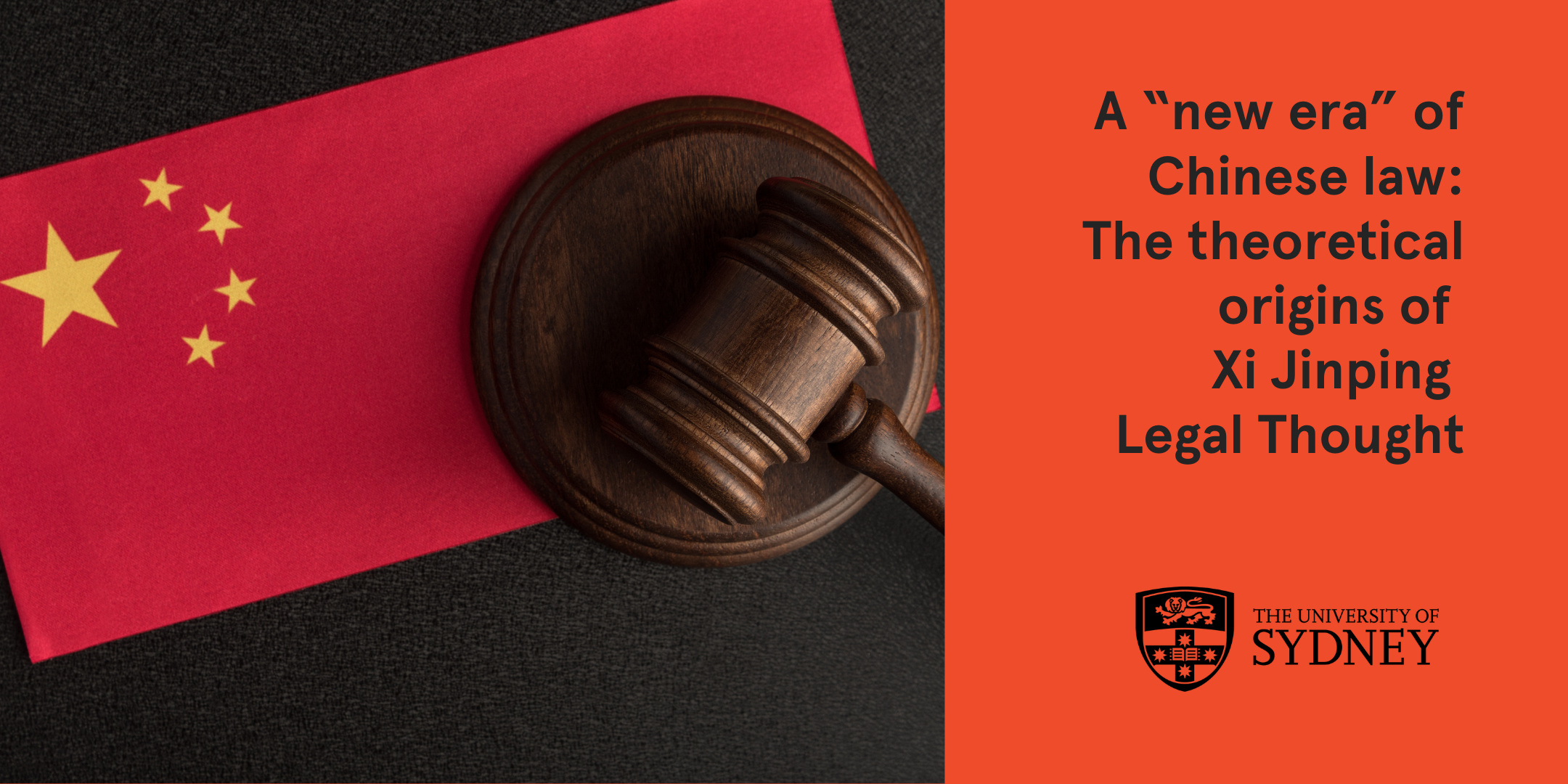
CANCELLED A “new era” of Chinese law: The theoretical origins of Xi Jinping Legal Thought
In-person event
**CANCELLED** A “new era” of Chinese law: The theoretical origins of Xi Jinping Legal Thought
THIS EVENT HAS BEEN CANCELLED
Xi Jinping Legal Thought was officially announced as the “leading ideology” of Chinese law and legal studies in November 2020. Since 2021, all students of law and related subjects in China have been assigned compulsory classes in Xi Jinping Legal Thought. Moreover, law schools are required to let Xi’s theories “permeate” all other classes of their curriculum. In order to be able to teach such courses, all law professors and lecturers are demanded to participate in a centralized training in Xi Jinping Legal Thought.
Xi Jinping Legal Thought can be understood as the juristic version of “Xi Jinping Thought on Socialism with Chinese Characteristics for a New Era”. This thought system constitutes the newest element of Sinomarxism, the so-called “sinicized” and thus significantly altered form of Marxism. Xi Jinping Thought was included in the CCP Statute in 2017 and the Constitution in 2018, complementing the other main elements of “Marxism with Chinese characteristics”: Marxism-Leninism, Mao Zedong Thought, Deng Xiaoping Theory, Jiang Zemin’s “Important Thought of Three Represents”, and Hu Jintao’s “Scientific Outlook on Development.”
Xi claims to lead China—including Chinese law and Chinese (legal) academia—into a “new era”. Indeed, Xi has introduced a large number of new, often numerical concepts, such as the “four comprehensives,” “consciousnesses,” and “self-consciousnesses,” the “twelve socialist core values,” or the “ten,” “eleven,” and “fourteen upholds.” They all shall contribute to the “great rejuvenation of the Chinese nation” and thus realize Xi’s “China Dream.”
These concrete topoi notwithstanding, Xi continues the four basic paradigms of traditional Sinomarxist jurisprudence: First, Sinomarxism conceptualises both law and (legal) science as subordinate to practice. Enacting, interpreting, and analysing the law (as part of the superstructure in a Marxist sense) must “seek truth from facts” (as part of the basis). This emanates from the base-superstructure-theory, the core element of (historical) materialism. Second, the practice that law must abide by is the actual one. The actuality criterion merges the base-superstructure model and dialectics into dialectical materialism. However, the “actual” situation in China—as expressed by the so-called main contradictions in Chinese society—is exclusively determined by the CCP. Third, Sino-Marxism propagates an integrated “politics and law” concept. It considers law (and legal studies) as intrinsically interwoven with, and subordinate to, politics. Both the political system and all policies in China can ultimately be drawn back to CCP as the exclusive ruling party exercising comprehensive party leadership.
Following this subordination of law and science to the “actual” facts and to party politics, Sino-Marxism—including Xi Jinping Legal Thought—demands both legal norms and legal studies to “emanate from political realism,” “repel abstract and void idealism,” and “be born out of political power.” Such demands cumulate in a factualist positivism of power undermining the normativity and autonomy of (Chinese) law and legal studies.
This is event is part of the Centre for Asian and Pacific Law HDR/ECR series.
Speaker
Speaker: Philipp Renninger, Global Professor of Practice, Law (China)
University of Arizona James E. Rogers College of Law
Commentator:
Professor Yingjie Guo, Faculty of Arts and Social Science, the University of Sydney
Moderator: Jie (Jeanne) Huang, Associate Professor, Sydney Law School
>>>>>>>>>>>>>>>>>>>>>
Friday 13 September 2024
Time: 12-1pm Venue: Sydney Law School, Common Room, Level 3, New Law Building (F10), University of Sydney, Camperdown campus
CPD points = 1
>>>>>>>>>>>>>>>>>>>>>
This event is co-sponsored by the China Studies Centre and the Centre for Asian and Pacific Law.
>